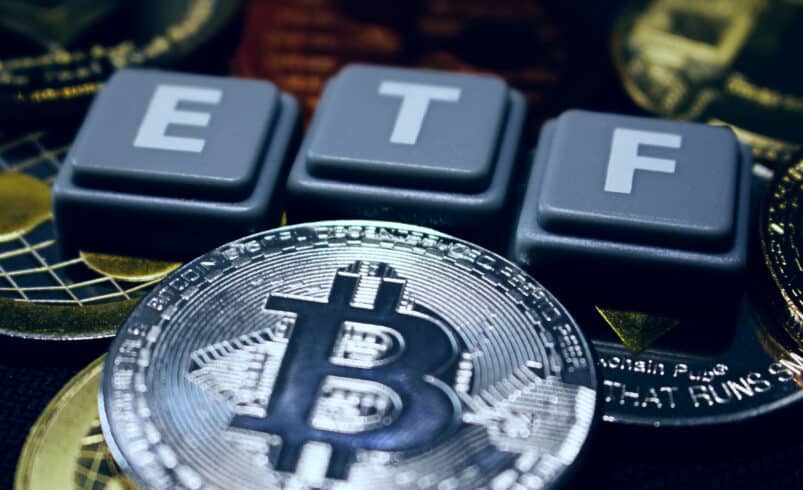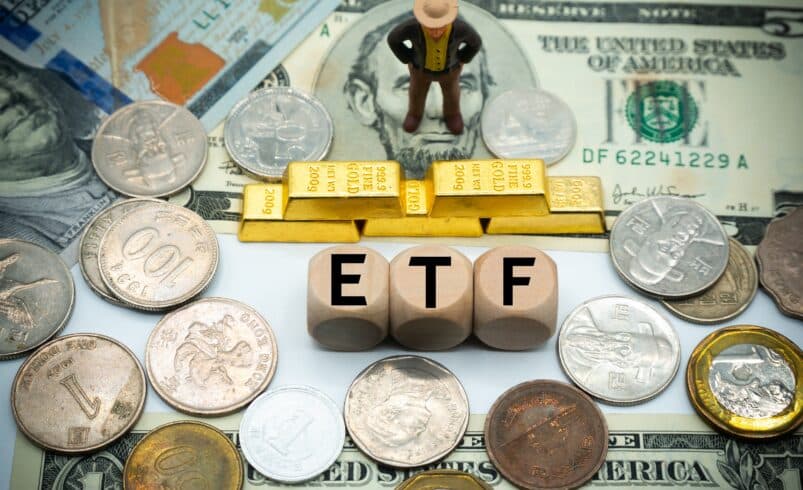Mastering Bitcoin Futures ETFs: An Investor’s Comprehensive Guide

A Bitcoin Futures Exchange-Traded Fund (ETF) allows investors to engage with futures contracts while avoiding direct ownership of the digital currency.
Futures contracts are financial derivatives that create an obligation for the buyer to purchase or for the seller to sell an asset (in this instance, Bitcoin) at a set future date and price.
Functioning of a Bitcoin Futures ETF
The main objective of a Bitcoin Futures ETF is to mirror the performance of the Bitcoin futures contracts it follows.
This is achieved when an investment firm establishes a subsidiary as a commodity pool, per the CFTC guidelines. This pool engages in trading futures contracts to approximate the actual Bitcoin price.
Nevertheless, the ETF might have to adjust its holdings regularly since futures contracts come with expiration dates. This ‘rolling’ of contracts involves selling those close to expiry and acquiring ones with more distant expiration dates. Such adjustments can affect the ETF’s performance, particularly during periods of contango (when futures prices exceed spot prices) or backwardation (when futures prices are below spot prices).
Bitcoin Futures ETFs, like other ETFs, incur management fees for operational and administrative costs. Investors need to understand these fees and their potential impact on returns.
Regulatory Aspects of Bitcoin Futures ETFs:
These ETFs fall under regulatory scrutiny. Bodies like the United States Securities and Exchange Commission must review and authorize these financial instruments before they are available for public investment. Currently, there are several Bitcoin Futures ETFs available in the U.S.
Reasons for Opting for a Bitcoin Futures ETF:
Investors might be drawn to Bitcoin Futures ETFs for various reasons, aligning with their investment goals, risk tolerance, and market perspective. The following are some reasons an investor might consider a Bitcoin Futures ETF:
- Indirect Bitcoin Exposure: For those seeking to engage with Bitcoin’s price movements without direct ownership, a Bitcoin Futures ETF offers a viable option. This eliminates the need for a cryptocurrency wallet and the challenges of managing and storing Bitcoin.
- Risk Management: These ETFs serve as a tool for hedging against potential losses in other investment areas. Exposure to Bitcoin futures can balance risks linked with conventional assets such as stocks and bonds.
- Leverage Possibilities: Certain Bitcoin Futures ETFs employ leverage to enhance returns, appealing to investors comfortable with higher risk and confident about Bitcoin’s price trajectory. It’s vital to acknowledge that leverage also escalates risk levels.
- Convenience and Accessibility: Trading on standard stock exchanges, Bitcoin Futures ETFs offer easy access to a wide array of investors. This convenience ensures the ability to buy and sell shares at current market prices during trading hours, thus offering liquidity and adaptability.
- Regulatory Oversight: Under the watch of financial authorities, Bitcoin Futures ETFs provide a regulated alternative to direct investment in cryptocurrency exchanges, which may still clarify their regulatory status.
- Portfolio Diversification: Adding a Bitcoin Futures ETF can be a strategy for investors to diversify their investment portfolio, spreading risk across various assets to lessen overall portfolio volatility.
- Speculative Opportunities: Traders focusing on short-term market movements might leverage Bitcoin Futures ETFs to profit from the fluctuations in the cryptocurrency market, reacting to both upward and downward trends based on their market forecasts.
Distinguishing Spot Bitcoin ETFs from Bitcoin Futures ETFs
A spot bitcoin ETF diverges from its futures-based counterpart by investing directly in actual bitcoin. This investment strategy directly aligns the ETF’s performance with the real-time price fluctuations of the cryptocurrency.
Investors in a spot bitcoin ETF are thus directly affected by the immediate market volatility of bitcoin. Positive shifts in bitcoin’s price can lead to gains for these investors, while negative trends might result in losses.
Unlike futures-based ETFs, spot bitcoin ETFs typically abstain from using leverage, and they are not obligated to engage in contract rolling since they hold physical bitcoin, which is devoid of expiration concerns.
Understanding the Risks Associated with Bitcoin Futures ETFs
The valuation of a bitcoin futures ETF is intrinsically linked to the dynamics of the bitcoin futures market. Market conditions like contango or backwardation could significantly influence the ETF’s returns. Rolling over futures contracts to circumvent expiry can introduce additional transactional costs.
Certain bitcoin futures ETFs employ leverage as a means to potentially increase gains. However, this strategy also escalates risk, potentially leading to more significant losses amid heightened market volatility.
Trading in bitcoin futures involves counterparty risk, especially if entities engaged in these transactions fail to fulfill their obligations, potentially affecting the ETF’s performance.
Additionally, the regulatory framework for Bitcoin and its associated financial instruments is subject to change. Any alterations in regulations or legal challenges can affect the operation and asset value of a bitcoin futures ETF.
Investors should note that the regulatory climate and the availability of bitcoin futures ETFs may vary across different regions. It is advisable for investors to thoroughly examine the prospectus and the associated risk factors of any ETF, taking into account elements like regulatory consent, fee structures, and the fund’s investment approach.
Editorial credit: Beneath Blue / Shutterstock.com
DISCLAIMER: It's essential to understand that the content on this page is not meant to serve as, nor should it be construed as, advice in legal, tax, investment, financial, or any other professional context. You should only invest an amount that you are prepared to lose, and it's advisable to consult with an independent financial expert if you're uncertain. For additional details, please review the terms of service, as well as the help and support sections offered by the provider or promoter. While our website strives for precise and impartial journalism, please be aware that market conditions can shift unexpectedly and some (not all) of the posts on this website are paid or sponsored posts.









